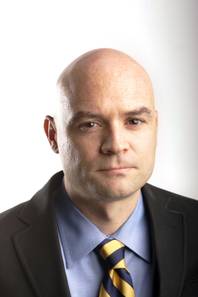Tuesday, March 29, 2011 | 2 a.m.

J. Patrick Coolican
Sun archives
The plan to eliminate UNLV’s philosophy department is so preposterous, so right out of a “Simpsons” episode, that the cynic in me thinks it’s a devious — and ethically suspect! — plan to draw attention to the Draconian budget cuts proposed by Gov. Brian Sandoval.
But this is Nevada, and the first term Republican governor has proposed a 17 percent cut to higher education, so sure, why not eliminate philosophy?
After all, aren’t we talking about some college kids and their life-of-leisure professors sitting around ruminating about the meaning of life?
That might be how philosophy is portrayed in popular culture, so it’s understandable that Nevada’s august legislators might think that, but philosophy is something else entirely.
It’s the foundation — along with the Judeo-Christian tradition — of all Western civilization.
(By Western civilization, I don’t mean cowboy poetry and country and western music, but rather, Plato to Shakespeare and everything else.)
Philosophers, specifically Plato and Aristotle, invented the university and established the entire notion of critical, analytical thinking, which is to say, logic. From that, pretty much all human knowledge followed.
The German philosopher Leibniz gave us calculus, which we use in countless fields, from the physical sciences to economics. Francis Bacon, Isaac Newton and Galileo, all in their time “natural philosophers,” devised the beginnings of the empirically driven scientific method from which all scientific progress has flowed. Philosophers are the reason we can distinguish between science and psuedo-science.
How about politics? Where did the Constitution come from? Sorry Sharron Angle, it wasn’t handed down on stone tablets by God. It’s an uneasy blend of Aristotle and John Locke. Philosophers both.
Adam Smith, father of capitalism? He was a moral philosopher.
And to my conservative friends: the father of conservatism? Edmund Burke, philosopher.
In short, philosophy is the rigorous application of reason to various human problems, be they moral, scientific, political — although its uses are universal. Philosophy students must learn to think through problems logically, understand arguments, present them fairly and then offer their own written analysis.
This is a difficult activity, but one that pays immense dividends, even if we’re being merely pragmatic. Philosophy students score the highest on the standardized test for law school and among the highest for business and graduate schools.
Pope John Paul II and Martin Luther King Jr. both studied philosophy, but if you prefer corporate sharks and entrepreneurs, there’s Peter Lynch, Carly Fiorina and Patrick Byrne, CEO of Overstock.com.
Bill Ramsey, a UNLV philosopher, came here in 2007 from the University of Notre Dame, where he won a pile of teaching awards. He left one of the best departments in the country, in part to build something here.
Ramsey teaches 200 students a semester in Philosophy 101 as well as ethics classes in which he instructs his students how to evaluate the arguments for and against abortion, gay marriage, the use of torture in interrogations and other contemporary issues. In both cases, he’s not telling the students what to think, but instructing them how to think critically.
As he notes, philosophy is “the one discipline that teaches the things we agree we need more of — critical thinking and ethical behavior.”
Think of the 2008 financial crisis, which was a toxic mixture of uncritical thinking and corruption.
So to review: No philosophy means no training in thinking or ethics.
How appropriate.
Coolican’s column appears on Tuesdays and Fridays.

Join the Discussion:
Check this out for a full explanation of our conversion to the LiveFyre commenting system and instructions on how to sign up for an account.
Full comments policy